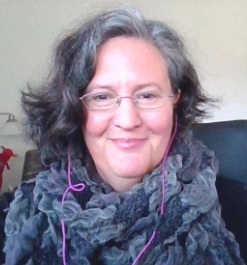|
 Our Mission
Our Mission
 Our Meetup
site
Our Meetup
site
 Our Facebook site
Our Facebook site
 Our Youtube Channel
Our Youtube Channel
Contact us, Membership
Library List
CJS Newsletters
Resources, Articles
Psychologists, Analysts
etc.
Other Canberra Happenings
Theosophical Society
Jung Platform
Carl Jung
Temenos
Jung Societies
Archives 2025
Archives 2024
Archives 2023
Archives 2022
Archives 2021
Archives 2020
Archives 2019
Archives 2018
Archives 2017
Archives 2016
Archives 2015
Archives 2014
Archives 2013
Archives 2012
Archives 2011
Archives 2010
Survey
Constitution
Updated by Robert James
17th December 2025
|
|
A non-profit organisation, which aims to provide a
contact for people
interested in the psychological insights of Carl Gustav
Jung.
Through monthly meetings, workshops, other activities
and our library,
we seek to help people to understand their own inner
journey
and the world today - from a Jungian perspective.
We normally meet at 7:30 for 8:00 pm
on the first Friday of each month
at MacKillop House Conference Centre,
50 Archibald Street, Lyneham (See
map).
|
|
.
|
Last
meeting:
Craig San
Roque: "Mystery of the Mysteries - A Talk in Honour of Glenda
Cloughley, on our 41st Anniversary"
<See the video>
-
See the "Archives" and the "Resources" menus to the left.
Special
Announcement:
John
Gillam's new book: Building Civilizations - Change and
Continuity" is now available:
Click here!
|
|
|
|
Next Meeting:
Friday 6th February 2026
"The Barbia Question"
with Dr Stephani Stephens
at MacKillop House, 50 Archibald St, Lyneham, ACT (and by Zoom)
|
 The
film "Barbie" serves as a springboard for us to examine Jung,
what he learned from the dead, his moral position with respect
to his ancestors and what he gleaned about the unconscious as a
result of all of it. Barbie herself, caught in the joys of a
celebratory unconscious, grows to individuate around this basic
of questions as she journeys to embrace a new vision of
consciousness. As we move through this discussion let's pose our
own question: does Jung's worthy work in this area help us with
our own hauntings and relationship with an unconscious that
might accommodate our ancestors? The
film "Barbie" serves as a springboard for us to examine Jung,
what he learned from the dead, his moral position with respect
to his ancestors and what he gleaned about the unconscious as a
result of all of it. Barbie herself, caught in the joys of a
celebratory unconscious, grows to individuate around this basic
of questions as she journeys to embrace a new vision of
consciousness. As we move through this discussion let's pose our
own question: does Jung's worthy work in this area help us with
our own hauntings and relationship with an unconscious that
might accommodate our ancestors?
Jung assures:
"Inner
peace and contentment depend in large measure upon whether or
not the historical family which is inherent in the individual
can be harmonised with the ephemeral conditions of the present"
(MDR, p. 264).
As we explore some of these
ideas, Avery Gordon is also useful here:
“Ghostly matters are
part of social life…Haunting is a part of our social world and
understanding it is essential to grasping the nature of our
society and for changing it” (Ghostly Matters, p. 23 and p.
27)
Dr. Stephani Stephens
is a Jungian oriented psychotherapist and a lecturer in
Counselling at the University of Canberra. She holds a PhD from
the University of Kent, Canterbury, UK in Jungian psychology.
She is the author of C.G. Jung and the Dead; Visions, Active
Imagination and the Unconscious Terrain by Routledge. Her areas
of research include the unconscious, transgenerational
inheritance, cultural broaching, and the self in therapeutic
practice. She teaches counselling skills, theory, diversity and
ethics to both postgraduates and undergraduates and maintains a
small therapy practice.
|
| |

